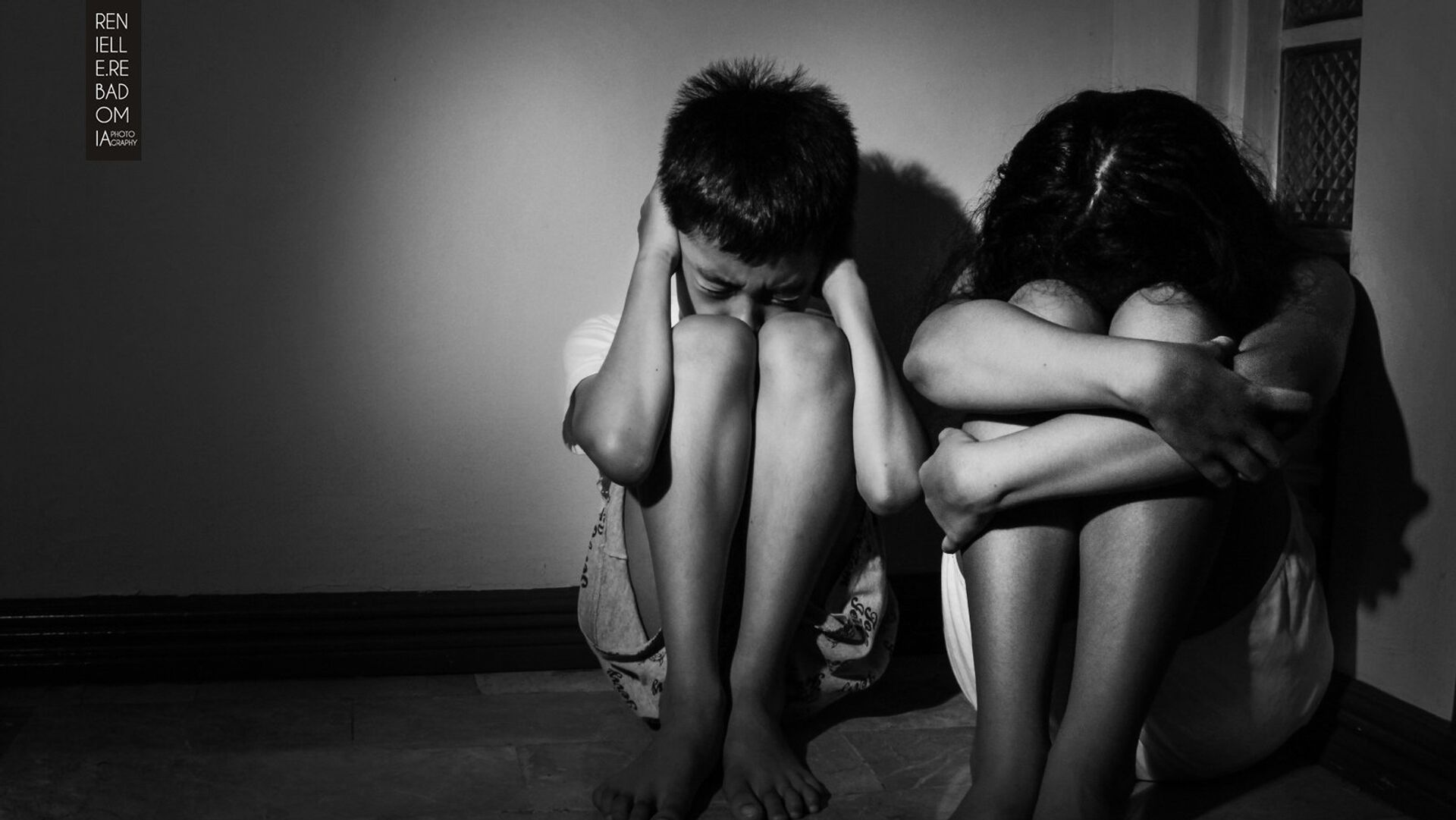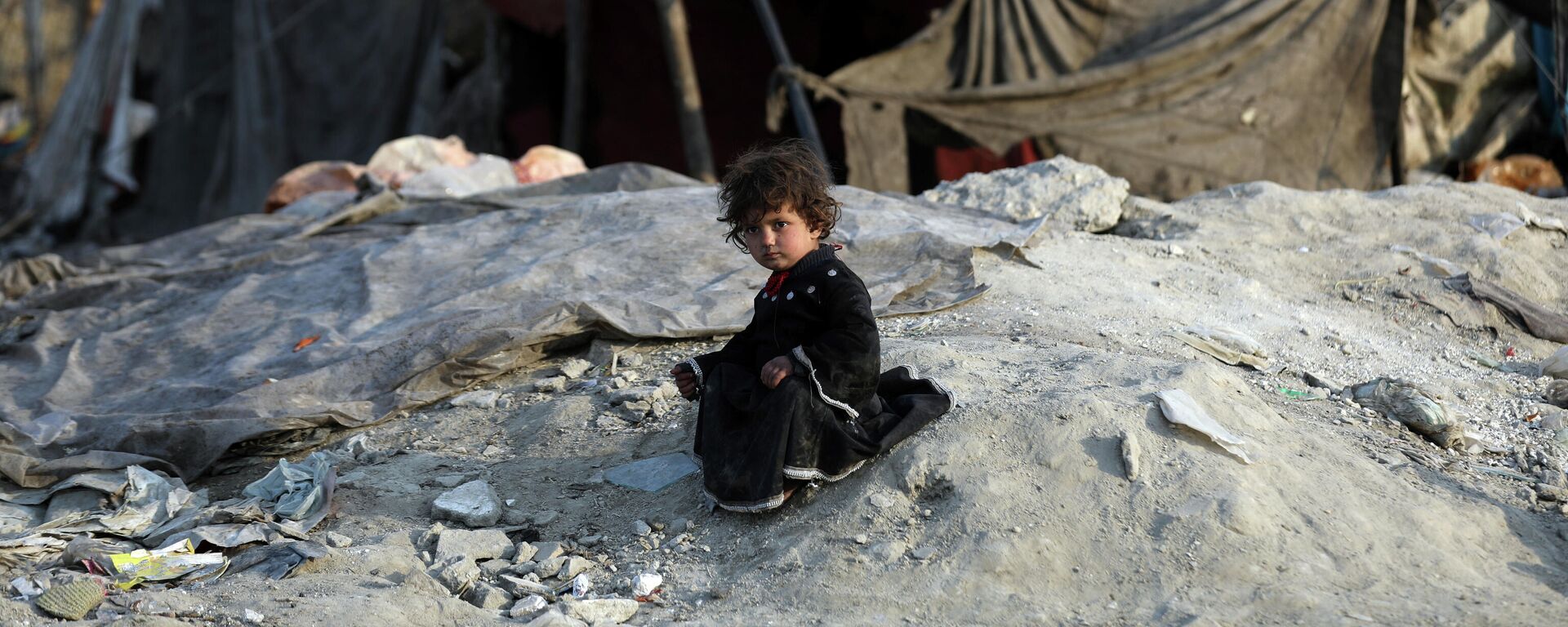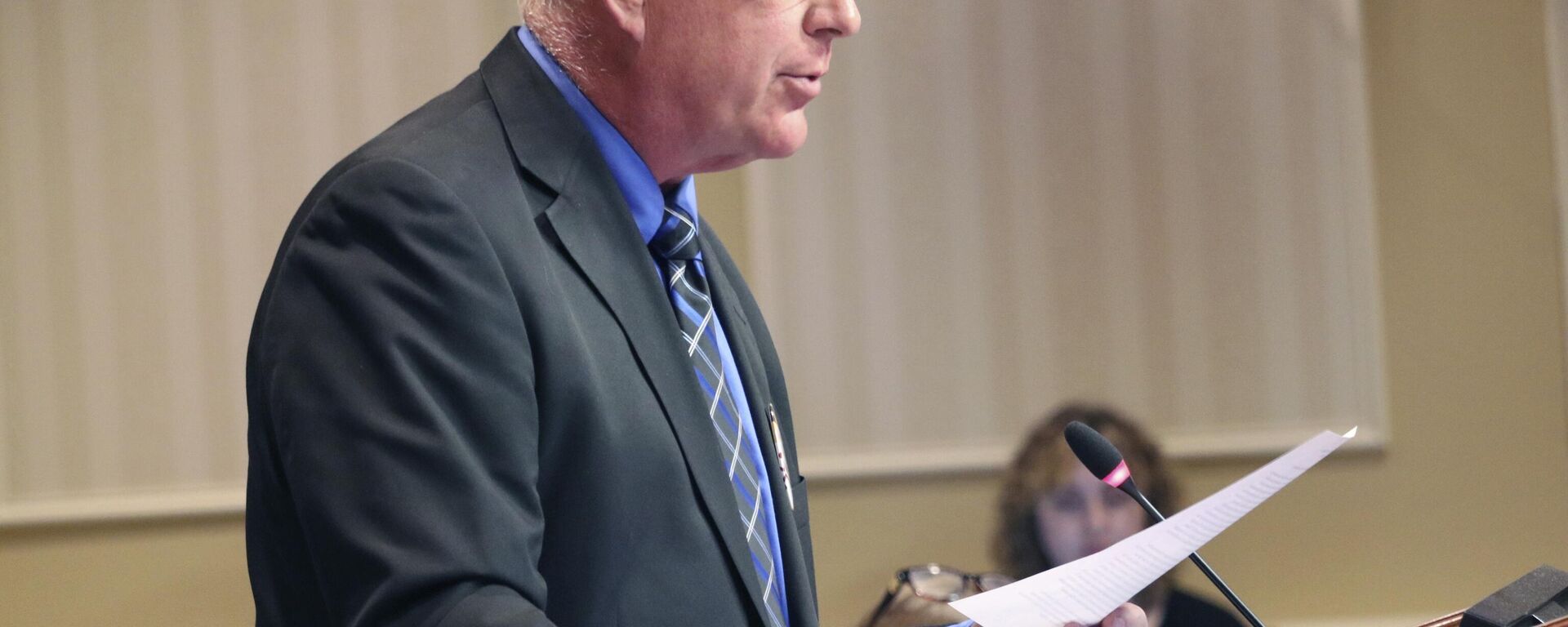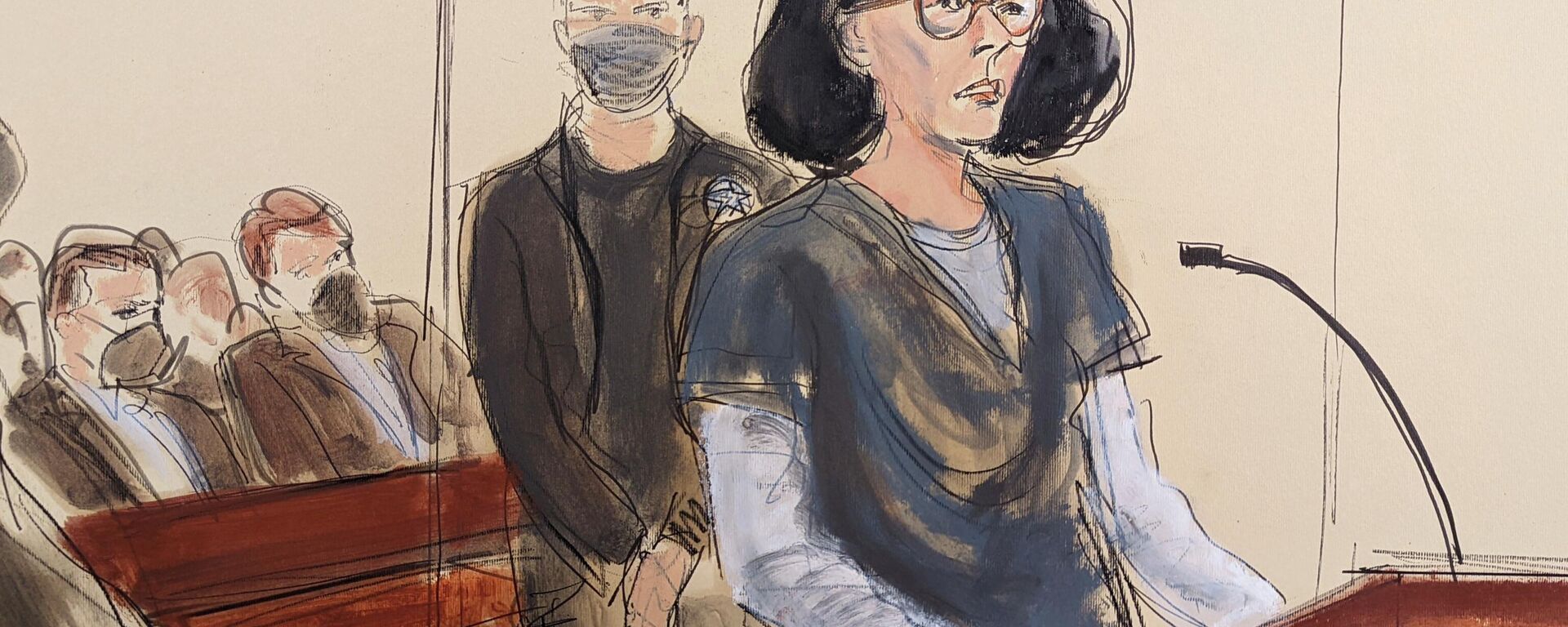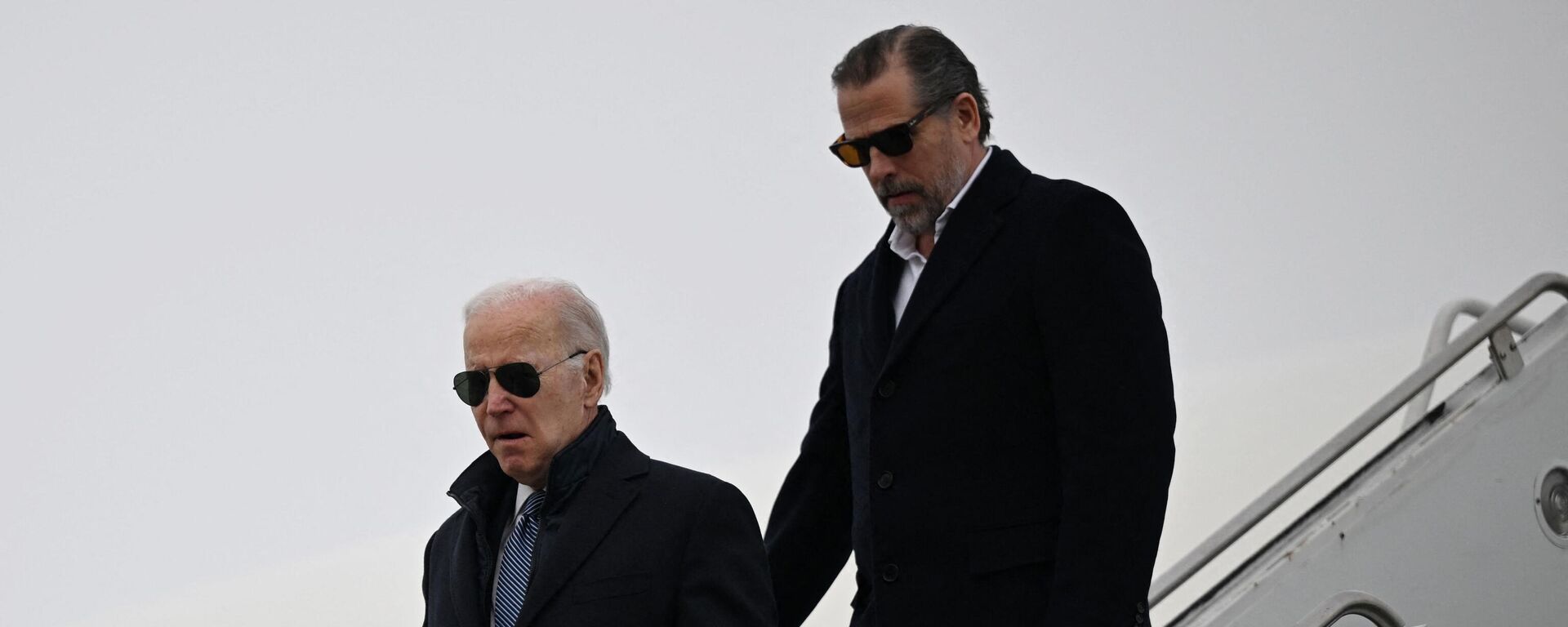https://sputnikglobe.com/20230713/russian-foreign-ministry-reports-on-childrens-rights-violations-in-us-intercountry-adoption-1111853062.html
Russian Foreign Ministry Reports on Children's Rights Violations in US Intercountry Adoption
Russian Foreign Ministry Reports on Children's Rights Violations in US Intercountry Adoption
Sputnik International
All US attempts to position itself as a "leading advocate of children's rights" lack legal backing while the process of international adoption in the US is "opaque, highly corrupt, resource-intensive" and "subject to political neo-colonial tendencies," the Russian Foreign Ministry report said.
2023-07-13T15:07+0000
2023-07-13T15:07+0000
2023-07-13T15:07+0000
world
russia
us
child abuse
child adoption
human trafficking
https://cdn1.img.sputnikglobe.com/img/104394/01/1043940197_0:0:1600:901_1920x0_80_0_0_0ae84220073696d372b4b77566deb58e.jpg
Washington's pretended concern about the situation with children in the zone of the Russian special military operation is only a facade and can be explained by the fact that the US considers Ukraine as a source of international adoptions, primarily of children of Slavic origin, according to the Russian Foreign Ministry.The Russian Federation placed a moratorium on US citizens adopting Russian children in response to developments surrounding the 2010 adoption of Artem Saveliev, who was returned to Russia by his adoptive mother from the United States.Where It All BeganThe story of Artem Saveliev, a boy from a remote village in the Russian Far East who traveled to the United States with his adoptive mother and returned alone in less than six months with a note from his estranged new mother, shook Russia.Artem arrived in Moscow from Washington on April 8, 2010. He carried a note saying that his adoptive mother, US citizen Torry-Ann Hansen, was giving up the child, claiming he was mentally unstable.His return received widespread media coverage and led to a one-year moratorium on American citizens adopting Russian children, and later to an outright ban. The former American adoptive mother was ordered by the court to pay child support for Artem's care and psychological correction.‘Free Adoption’ MoratoriumThe official reason for Russia's moratorium was the lack of a detailed international agreement between the Russian Federation and the United States that would regulate the situation of adopted children from Russia in that country (at the time of the moratorium, such a bilateral agreement had only been signed with Italy).Since the ban on US citizens adopting Russian nationals came into effect on January 1, 2013, the focus of such activities has shifted to Ukraine and other post-Soviet states, which are seen as new "markets" for adopting children of European (white Caucasian) descent.The United States has a system of intercountry adoption that does not guarantee the fundamental, inalienable rights of children and often results in widespread violations of the legal interests of minors. This is due to the inadequacies of federal legislation and state regulations.In the US legal system, adoption matters are almost exclusively under the jurisdiction of state and local authorities, in accordance with the federal structure and principles of regulation of intra-family relations. As a result, there are dozens of different laws governing adoption and the monitoring of adoptees' rights.The worst situation in monitoring the well-being of adopted children is observed in the states with the so-called "free adoption" system: California, Alaska, Arizona, Massachusetts, Pennsylvania, Minnesota, Missouri, and others. In the absence of effective state control, adoptive parents and intermediaries - legal and physical entities involved in adoption for payment by interested parties - play a crucial role in placing children in new families.US Intercountry Adoption: Practice of NeocolonialismAccording to the Russian Foreign Ministry, the process of international adoption in the United States is characterized by opacity, corruption, resource-intensive procedures, and influenced by neo-colonial political tendencies.Child on the CheapAdoption from Russia was considered cheap in the United States. This was the main reason why Americans adopted minors from the Russian Federation at the expense of tens of thousands of orphans in their own country.Of the officially registered 61,600 cases of Russian children adopted by American families, only one-third are considered successful by adoption monitoring authorities and organizations. Another one-third are considered relatively acceptable. The remaining one-third of adoptions are considered unsuccessful. They involve:American Courts: Russian? On Wrong Side of Law!Discrimination within the American judicial system is one of the factors contributing to the low level of legal protection of adopted Russian children in the United States. The analysis of the judicial practice shows that in certain cases the American courts (at the county and state level) have given unjustifiably lenient sentences to US citizens who were guilty of the death and cruel treatment of the children adopted from Russia.No legal mechanisms have been found to ensure the equality of all children before American law and the effective protection of their rights. The US Department of Justice, which is responsible for monitoring the uniform application of laws throughout the country and the realization of the constitutional rights of citizens regardless of their age or social background, has not taken any appropriate measures with regard to children adopted from Russia.On the basis of international obligations and in accordance with national legislation, the Russian side has taken a number of consistent measures to combat violations in the field of international adoption, including the initiative to conclude a relevant bilateral agreement with the United States.US authorities (both Democratic and Republican) persistently refused to enter into similar agreements with other countries of origin for adopted children, advocating for their accession to the relevant 1993 Hague Convention and making efforts to establish an international market for adoption services based on a neo-colonial scheme of "developing countries as suppliers of children - Western countries as receiving parties."The US government, under both Democrats and Republicans, has steadfastly refused to sign similar agreements with other countries of origin for adoptees, instead advocating accession to the relevant 1993 Hague Convention. They have sought to create an international market for adoption services based on a neo-colonial scheme of "developing countries as suppliers of children - Western countries as recipients."Failed Champion of Children's RightsDespite US attempts to position itself as a leader in international advocacy for children's rights, Washington has no record of success in this area. America's claims to be a champion of children's rights are not backed up by an adequate domestic legal framework or legal practice. The child rights protection system established in the United States is inadequate to meet the challenges of the times.There are systemic gaps that indicate inadequate protection of children's rights in the United States as a whole. Neither parents, the state legal system, nor the US civil society organizations are able to ensure the protection of children's rights and interests at a level that meets international standards.Russia held the highest position in terms of the total number of European descendants adopted by US citizens before the adoption ban took effect on January 1, 2013.According to official data (annual reports on international adoptions) of the US State Department, the total number of Russians adopted between 2008 and 2013 was 5,533.However, according to data from the US Citizenship and Immigration Services of the Department of Homeland Security, the total number of American visas issued to adopted minors of Russia, as well as for the purpose of completing the adoption process in the US, from 1992 to 2012 was 61,625.In the same period, Ukraine took second place in this category of adoptions with 2,706 people. On the whole, Ukraine has become one of the main suppliers of children to the USA: the total number for the period from 2008 to 2021 is 5,040. In essence, Ukraine has replaced Russia in the American adoption services industry.
https://sputnikglobe.com/20230422/log-in-the-eye-western-crimes-against-children-in-war-zones-revealed-1109763716.html
https://sputnikglobe.com/20230406/attorney-general-releases-report-on-child-sexual-abuse-in-baltimore-catholic-archdiocese-1109182769.html
https://sputnikglobe.com/20230301/ghislaine-maxwell-to-claim-she-was-held-under-inhumane-conditions-in-upcoming-appeal---report-1107886983.html
https://sputnikglobe.com/20230118/case-of-us-couple-charged-with-child-trafficking-and-torture-of-10-year-old-boy-in-uganda-explained-1106454653.html
https://sputnikglobe.com/20230418/marjorie-taylor-greene-claims-biden-crime-family-engaged-in-human-trafficking-1109637007.html
russia
Sputnik International
feedback@sputniknews.com
+74956456601
MIA „Rossiya Segodnya“
2023
Sputnik International
feedback@sputniknews.com
+74956456601
MIA „Rossiya Segodnya“
News
en_EN
Sputnik International
feedback@sputniknews.com
+74956456601
MIA „Rossiya Segodnya“
Sputnik International
feedback@sputniknews.com
+74956456601
MIA „Rossiya Segodnya“
child rights violation, child right abuse, child abuse, violenace against children
child rights violation, child right abuse, child abuse, violenace against children
Russian Foreign Ministry Reports on Children's Rights Violations in US Intercountry Adoption
All US attempts to position itself as a "leading advocate of children's rights" lack legal backing while the process of international adoption in the US is "opaque, highly corrupt, resource-intensive" and "subject to political neo-colonial tendencies," the Russian Foreign Ministry report said.
Washington's pretended concern about the situation with children in the zone of the Russian special military operation is only a facade and can be explained by the fact that the US considers Ukraine as a source of international adoptions, primarily of children of Slavic origin, according to the Russian Foreign Ministry.
The Russian Federation placed a moratorium on US citizens adopting Russian children in response to developments surrounding the 2010 adoption of Artem Saveliev, who was returned to Russia by his adoptive mother from the United States.
The story of Artem Saveliev, a boy from a remote village in the Russian Far East who traveled to the United States with his adoptive mother and returned alone in less than six months with a note from his estranged new mother, shook Russia.
Artem arrived in Moscow from Washington on April 8, 2010. He carried a note saying that his adoptive mother, US citizen Torry-Ann Hansen, was giving up the child, claiming he was mentally unstable.
His return received widespread media coverage and led to a one-year moratorium on American citizens adopting Russian children, and later to an outright ban. The former American adoptive mother was ordered by the court to pay child support for Artem's care and psychological correction.
‘Free Adoption’ Moratorium
The official reason for Russia's moratorium was the lack of a detailed international agreement between the Russian Federation and the United States that would regulate the situation of adopted children from Russia in that country (at the time of the moratorium, such a bilateral agreement had only been signed with Italy).
Since the ban on US citizens adopting Russian nationals came into effect on January 1, 2013, the focus of such activities has shifted to Ukraine and other post-Soviet states, which are seen as new "markets" for adopting children of European (white Caucasian) descent.
The United States has a system of intercountry adoption that does not guarantee the fundamental, inalienable rights of children and often results in widespread violations of the legal interests of minors. This is due to the inadequacies of federal legislation and state regulations.
In the US legal system, adoption matters are almost exclusively under the jurisdiction of state and local authorities, in accordance with the federal structure and principles of regulation of intra-family relations. As a result, there are dozens of different laws governing adoption and the monitoring of adoptees' rights.
The worst situation in monitoring the well-being of adopted children is observed in the states with the so-called "free adoption" system: California, Alaska, Arizona, Massachusetts, Pennsylvania, Minnesota, Missouri, and others. In the absence of effective state control, adoptive parents and intermediaries - legal and physical entities involved in adoption for payment by interested parties - play a crucial role in placing children in new families.
US Intercountry Adoption: Practice of Neocolonialism
According to the Russian Foreign Ministry, the process of international adoption in the United States is characterized by opacity, corruption, resource-intensive procedures, and influenced by neo-colonial political tendencies.
The United States remains the only country that has not ratified the UN Convention on the Rights of the Child, which establishes basic standards for the comprehensive protection of children's rights.
There have been cases of gross violations – murders, sexual assaults, serious physical injuries, and abuse – against Russian minors adopted by American citizens, including increased illegal adoptions by same-sex couples and "transferring parental rights" to third parties.
US authorities, in violation of international law and the 1964 bilateral Russian-American Consular Convention, have repeatedly concealed forensic and medical documents related to the cases of affected children from Russia and denied consular access to
child victims of physical and sexual violence.
US authorities ignored requests from relevant Russian authorities, including the Russian Federation Prosecutor General's Office and the Investigative Committee, and systematically downplayed the standards of accountability for American adoptive parents.
The US State Department has remained silent about numerous high-profile violations of criminal, administrative, immigration, and social laws in the United States that occurred during the adoption of Russian children and has failed to include this information in its annual reports on the subject.
Adoption from Russia was considered cheap in the United States. This was the main reason why Americans adopted minors from the Russian Federation at the expense of tens of thousands of orphans in their own country.
Of the officially registered 61,600 cases of Russian children adopted by American families, only one-third are considered successful by adoption monitoring authorities and organizations. Another one-third are considered relatively acceptable. The remaining one-third of adoptions are considered unsuccessful. They involve:
sharp decline in the adopted children's well-being,
there are even cases of return to Russia or placement in specialized children's homes or other foster care.
American Courts: Russian? On Wrong Side of Law!
Discrimination within the American judicial system is one of the factors contributing to the low level of legal protection of adopted Russian children in the United States. The analysis of the judicial practice shows that in certain cases the American courts (at the county and state level) have given unjustifiably lenient sentences to US citizens who were guilty of the death and cruel treatment of the children adopted from Russia.
No legal mechanisms have been found to ensure the equality of all children before American law and the effective protection of their rights. The US Department of Justice, which is responsible for monitoring the uniform application of laws throughout the country and the realization of the constitutional rights of citizens regardless of their age or social background, has not taken any appropriate measures with regard to children adopted from Russia.
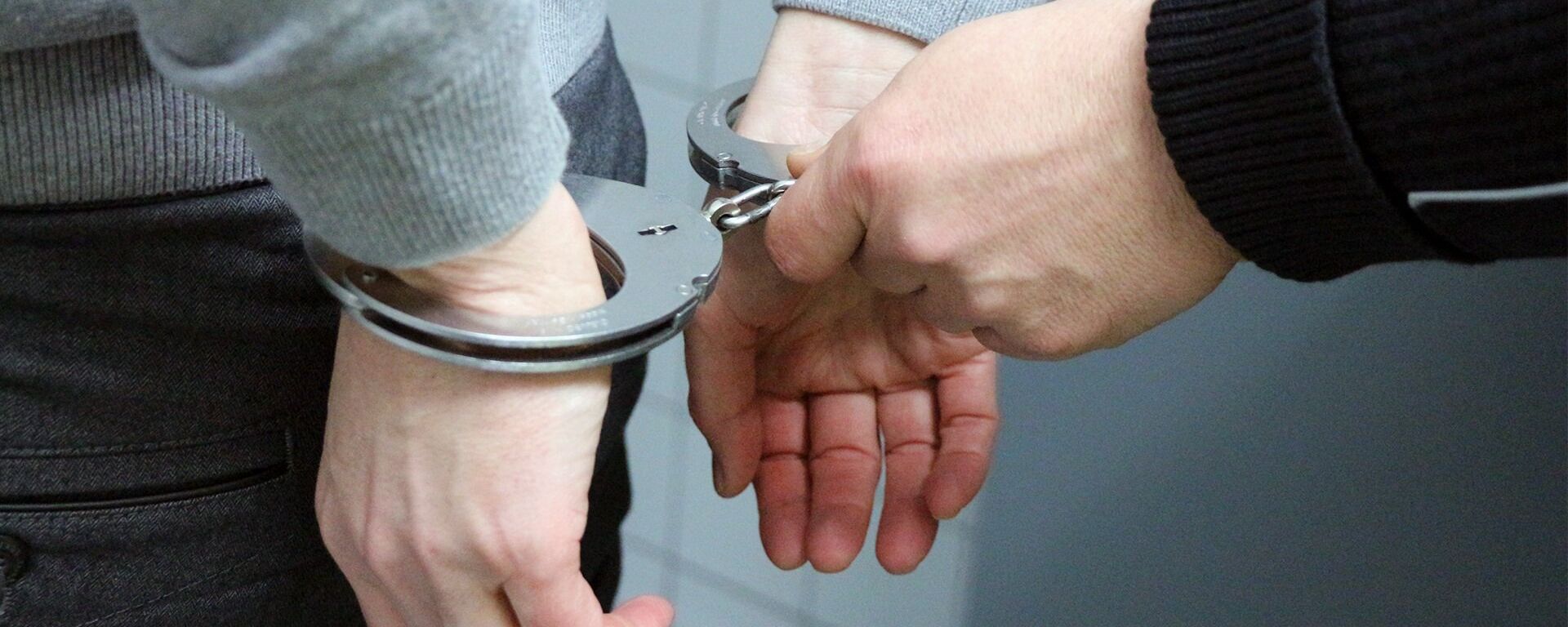
18 January 2023, 12:42 GMT
On the basis of international obligations and in accordance with national legislation, the Russian side has taken a number of consistent measures to combat violations in the field of international adoption, including the initiative to conclude a relevant bilateral agreement with the United States.
US authorities (both Democratic and Republican) persistently refused to enter into similar agreements with other countries of origin for adopted children, advocating for their accession to the relevant 1993 Hague Convention and making efforts to establish an international market for adoption services based on a neo-colonial scheme of "developing countries as suppliers of children - Western countries as receiving parties."
The US government, under both Democrats and Republicans, has steadfastly refused to sign similar agreements with other countries of origin for adoptees, instead advocating accession to the relevant 1993 Hague Convention. They have sought to create an international market for adoption services based on a neo-colonial scheme of "developing countries as suppliers of children - Western countries as recipients."
Failed Champion of Children's Rights
Despite US attempts to position itself as a leader in international advocacy for children's rights, Washington has no record of success in this area. America's claims to be a
champion of children's rights are not backed up by an adequate domestic legal framework or legal practice. The child rights protection system established in the United States is inadequate to meet the challenges of the times.
There are systemic gaps that indicate inadequate protection of children's rights in the United States as a whole. Neither parents, the state legal system, nor the US civil society organizations are able to ensure the protection of children's rights and interests at a level that meets international standards.
Russia held the highest position in terms of the total number of European descendants adopted by US citizens before the adoption ban took effect on January 1, 2013.
According to official data (annual reports on international adoptions) of the US State Department, the total number of Russians adopted between 2008 and 2013 was 5,533.
However, according to data from the US Citizenship and Immigration Services of the Department of Homeland Security, the total number of American visas issued to adopted minors of Russia, as well as for the purpose of completing the adoption process in the US, from 1992 to 2012 was 61,625.
In the same period, Ukraine took second place in this category of adoptions with 2,706 people. On the whole, Ukraine has become one of the main suppliers of children to the USA: the total number for the period from 2008 to 2021 is 5,040. In essence, Ukraine has replaced Russia in the American adoption services industry.
